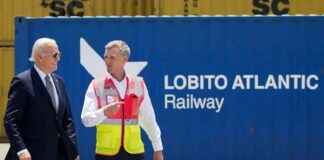**Impact of Climate Shocks on Global Economy: Urgent Action Needed to Avert Catastrophe**
A dire warning has been issued by risk management experts at the Institute and Faculty of Actuaries (IFoA), predicting a staggering 50 percent decline in the global economy’s gross domestic product between 2070 and 2090 due to the devastating impacts of climate change. This alarming revelation underscores the urgent need for immediate action by political leaders to decarbonize and restore nature to avert a catastrophic economic collapse.
Risk to Global Economy
The IFoA report, in collaboration with scientists at the University of Exeter, highlights the significant risks posed to the global economic well-being by climate change-induced events such as fires, flooding, droughts, temperature rises, and nature breakdown. These risks have been exacerbated by the failure to meet the internationally agreed target of limiting global temperature rise to 1.5 degrees Celsius, as evidenced by data from the European Union’s Copernicus Climate Change Service.
Potential Consequences
If urgent measures are not taken to accelerate decarbonization, remove carbon from the atmosphere, and restore nature, the global economy faces a plausible worst-case scenario of a 50 percent loss in GDP by the end of the 21st century. The report paints a grim picture of a world where 3 degrees Celsius or more of heating by 2050 could lead to over 4 billion deaths, widespread sociopolitical fragmentation, state failures, and extinction events.
Call to Action
Sandy Trust, the lead author of the report, emphasized the critical need for immediate action to avoid this catastrophic scenario. He highlighted the inaccuracies in economic predictions that downplay the damages from global heating, warning that political leaders are being misled about the true risks of their policies. The report calls for a paradigm shift in economic theory to prioritize nature’s role in sustaining societies and economies, urging leaders to heed the warnings and take urgent steps to address the escalating planetary risks.
In conclusion, the report underscores the interconnectedness of nature, society, and the economy, emphasizing the need for a coordinated global effort to safeguard the planet’s future. Failure to act decisively could result in irreversible damage to Earth’s life-support systems, threatening the prosperity and well-being of future generations. As the clock ticks towards 2070-2090, the time to act is now to avert a looming economic catastrophe and secure a sustainable future for all.














